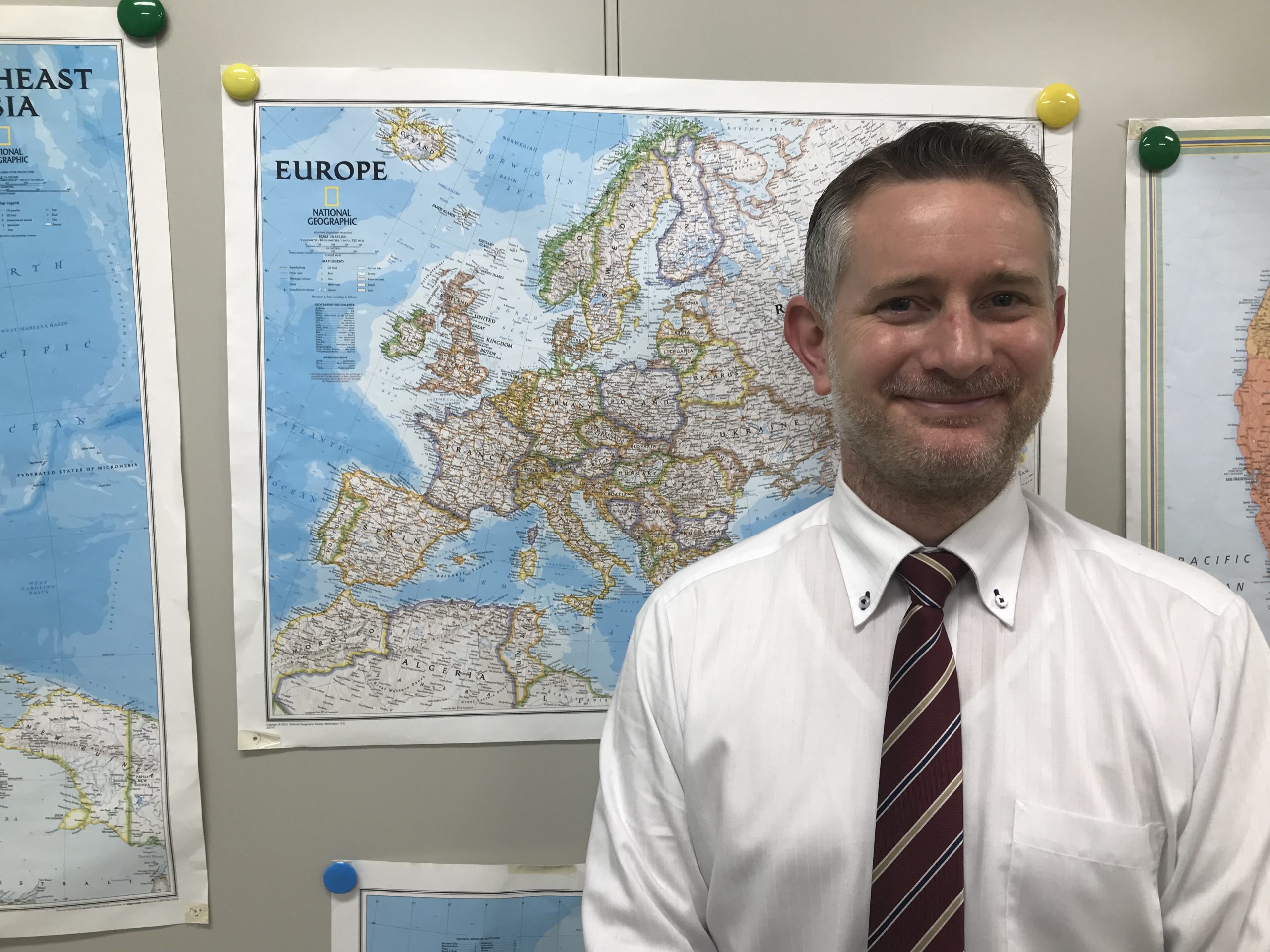担当教科について
A New Voice
英語 / William Furse
Q1 担当教科に興味を持ったきっかけを教えてください。
My first real experience of learning a foreign language came when I started taking French in my first year of secondary school. I remember feeling quietly confident as I sat in the classroom waiting for my first lesson to begin, having been taught a few simple phrases by my older brother and sister in advance. I was in for a shock, however, as the first thing the teacher did when the bell rang for the start of class was to burst into fluent French. Feeling a little stunned, I glanced around and was relieved to see my classmates looking as confused as I was. The teacher continued to talk enthusiastically, apparently expecting us to understand her perfectly. Occasionally she would ask a question before pausing expectantly for a moment and then starting up again, even more energetically than before. This certainly wasn’t what I was expecting in my first lesson, but as I listened, I couldn’t help starting to wonder what she was actually saying. This is the first time I can remember feeling a clear sense of curiosity about a foreign language, but it was something I would later come to feel regularly in lessons. As the year progressed and I started to pick up a little of the language, I found that the more I learned, the more I enjoyed studying. The following year, I started taking German lessons as well, and I quickly discovered that this language had its own distinct character, giving it a slightly different appeal to that of French. I also found studying two languages at the same time fascinating as it enabled me to learn similar things from different perspectives and compare the languages with each other as well as with English. Before long, I came to think of French and German as two of my favourite subjects. Although I eventually made the difficult decision not to take languages at college, I always felt a certain amount of regret about giving them up. Later, when I came to Japan as an adult, I was delighted to have a good excuse to start learning a new language again.
Q2 担当教科の魅力を教えてください。
In most cases, learning a foreign language means trying to gain both knowledge of the language and the practical skills to use it, and I think each of these areas offers its own rewards for the learner.
One of the things we can all enjoy when studying a language is simply the feeling of seeing our skills improve. For me, the most exciting time of all has always been when I first started to sense that I could make myself understood in the language. With French and German, this came when I was able to confidently express what I wanted to say in roleplays with my teacher. With Japanese, it came when I felt comfortable performing everyday tasks like sending a parcel overseas from the post office. Once I reached this stage, I found myself starting to see all kinds of new possibilities and to really enjoy using the language. The experience always seemed to me like that of being given a new voice, and this is the point where I think the pleasure of learning a foreign language truly begins.
Another of the joys of language learning comes from the new discoveries we make as our knowledge of the language grows. As learners, we naturally make comparisons between the language we are studying and our first language, and this leads us to notice similarities and differences between the two. As we try to make sense of these, we often discover new things about both languages, and in my experience, this feels like solving a small part of an enormous puzzle. At times, I remember coming across a part of the puzzle that I just couldn’t seem to solve, but perhaps months or even years later, something would unexpectedly trigger in my mind so that it suddenly made sense. Moments like these are some of the most satisfying I have experienced as a language learner. Since we can never really complete the puzzle however much we learn, there are always opportunities to discover more, and this is one of the things that I think gives language learning its great lasting appeal.

英語 / William Furse